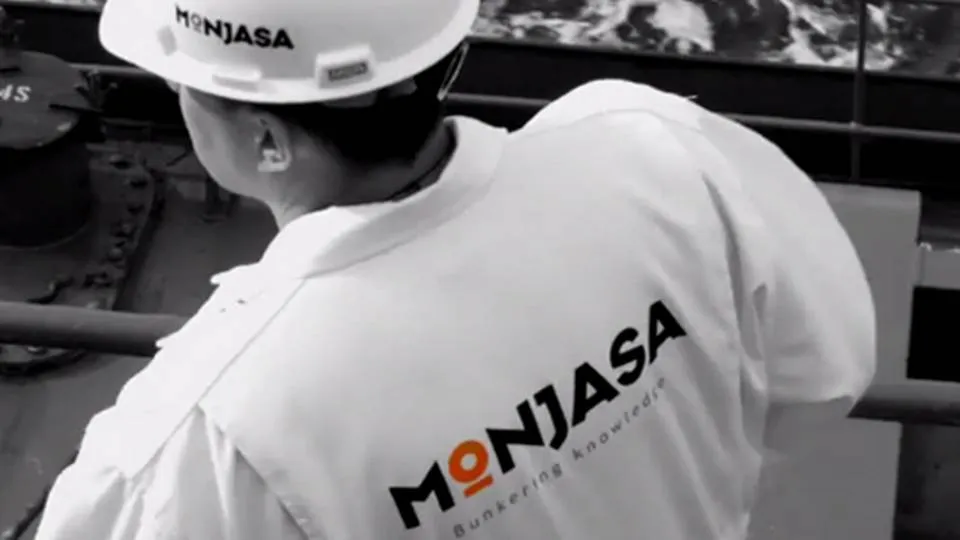
With companies such as Dan-Bunkering, Endofa and Swedish Stena Oil having withdrawn as physical fuel suppliers in West Africa, Monjasa has secured a dominant position in the major West African bunker market.
According to market sources WPO has spoken to, the market stands at an estimated 100,000-130,000 tons of bunker fuel delivered to commercial vessels and vessels servicing the offshore industry every month.
Do you want to stay up to date on the latest developments in International shipping? Subscribe to our newsletter – the first 40 days are free
More than half of the total fuel volumes off West Africa are delivered by Monjasa today, which has a contract with Geneva-based trading house Trafigura to supply 70,000-80,000 tons per month, transported from Rotterdam down to West Africa, according to WPO’s sources.
A big part of the ship traffic in the region – notorious for hijackings and bunker quality fraud as well as insufficient volumes of delivered bunker – consists of tanker vessels transporting oil and chemical products in and out of the region from hubs in countries such as Nigeria, Ghana, Angola, Congo, the Ivory Coast and up by Morocco.
Monjasa-owners found new company
While numerous companies have given up on delivering bunker fuel in West Africa, especially due to the significant risk of assaults and hijackings by local criminal gangs and syndicates that have gradually moved further and further off the coasts, Monjasa has turned West Africa into the company’s biggest business area.
Most recently, Monjasa’s two owners – Anders Østergaard and Jan Jacobsen – have founded the company African Springer Shipping, which owns a newly acquired tanker vessel.
The organized groups of criminals operating in West Africa have specialized in hijacking product tanker vessels and stealing the cargo, as Danish bunker companies Endofa and Dan-Bunkering experienced last summer off the coast of Ghana when the companies’ chartered ship was hijacked and the cargo, 3,500 tons of gas oil, stolen.
“There is a very clear system concerning tanker hijackings. Nigeria has an excess demand for certain products that makes this lucrative,” Hans Tino Hansen, CEO of security analysts Risk Intelligence, recently told WPO.
Monjasa Holding presents record-high 2013 result
Endofa and Dan-Bunkering established joint venture Oleum less than one year ago, but this collaboration no longer exists.
In June bunker vessel Fair Artemis, chartered by Oleum from a Greek company, came under fire and was hijacked off Tema, Ghana in West Africa. The crew of around 13 men escaped the incident unharmed and subsequently received psychological counseling, while the cargo of 3,500 tons fuel oil was stolen.
Following the hijacking, the two companies decided to call off the joint venture due to the risks and difficulties related to creating a profitable business in spite of operating seven vessels in the region.
Do you want to stay up to date on the latest developments in International shipping? Subscribe to our newsletter – the first 40 days are free
Bunker company Haipoon of Singapore also had a ship hijacked off West Africa last summer, on July 25th off the coast of Ghana.
Stena Oil: Major risks
Swedish Stena Oil has had two ships hijacked off West Africa, and the company has also withdrawn from the region. Vice President Patrick Pettersson, Stena Oil, does not rule out that the bunker company, which – as the name implies – is owned by the Stena Group, will return to the region if security is improved significantly in the area, and in Nigeria, in particular.
“This is a market that needs serious players, and after being there for almost five years we know the market particular well,” says Patrick Pettersson.
Do you want to stay up to date on the latest developments in International shipping? Subscribe to our newsletter – the first 40 days are free
In addition to Monjasa, WPO’s sources inform that only a few small Asian and local bunker companies are left operating as physical suppliers off the coast of West Africa.
Continuing risk of attacks
Monjasa says in a comment that the company is aware of the piracy risk in West Africa and that pirates frequently attempt assaults on the group’s vessels, with smaller vessels trying to board the ships from seaside.
Monjasa’s had its first ship, “Ocean Mariner,” hijacked in February 2011. Since that time, ship “Energizer” was hijacked in 2012 off Benin. In none of the incidents did the hijackings result in human consequences, says Thorstein Andreasen, press officer for Monjasa in Denmark:
“We’re in the process of establishing ourselves with an office in the port city Lome in Togo. From here, the group in collaboration with Danish Guardian will offer ship agency services, including safety measures in certain anchorages in cooperation with the Togolese navy, as seen in for instance Nigeria today, where several English companies are working with Nigerian authorities.”
Monjasa points to the company’s experience in West Africa and the build-up of security procedures and contingency measures as a significant factor enabling the company to operate in the region.
ole.andersen@WPO.dk
Danish bunker companies’ ship hijacked off Africa
Monjasa’s Africa company acquires tonnage
Denmark to fight pirates off West Africa
Piracy against small tankers a growing threat





